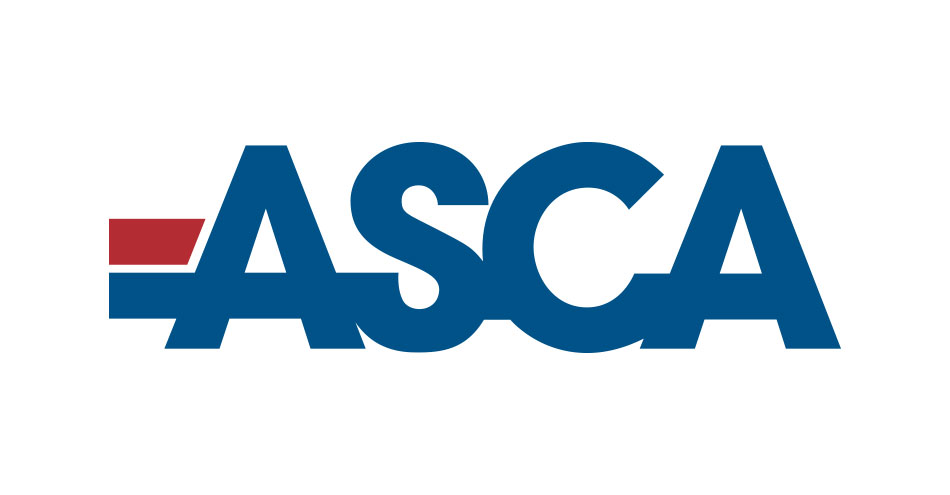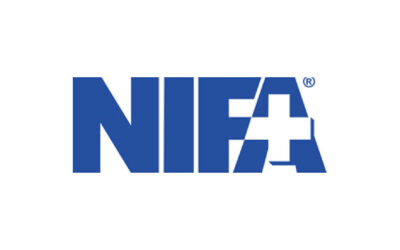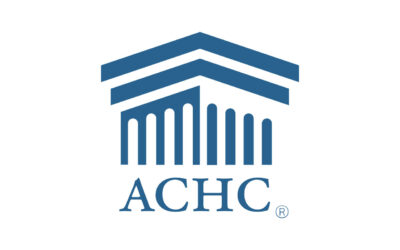By Bill Prentice
 Due, in part, to patients’ decisions to delay the outpatient surgical care they needed during the early days of the COVID-19 pandemic and growing interest in outpatient care as the pandemic continues, ASCs are getting a lot of attention these days. Across the country, they are reporting new interest in the services they provide and increased popularity among patients and physicians in their communities. During July, as demand for the care ASCs deliver continued to swell, the number of Medicare-certified ASCs in the U.S. exceeded 6,000 for the first time in the industry’s 51-year history.
Due, in part, to patients’ decisions to delay the outpatient surgical care they needed during the early days of the COVID-19 pandemic and growing interest in outpatient care as the pandemic continues, ASCs are getting a lot of attention these days. Across the country, they are reporting new interest in the services they provide and increased popularity among patients and physicians in their communities. During July, as demand for the care ASCs deliver continued to swell, the number of Medicare-certified ASCs in the U.S. exceeded 6,000 for the first time in the industry’s 51-year history.
Also in July, the Centers for Medicare & Medicaid Services (CMS) released its 2022 proposed payment rule for ASCs and hospital outpatient departments (HOPD). Its contents affect the services ASCs can provide to Medicare beneficiaries, payment rates for those services and many of the regulatory requirements ASCs must meet to be able to serve Medicare patients. For ASCs, the 2022 proposal is a mixed bag with some provisions that the ASC community has supported for many years and others that could inhibit ASCs’ ability to provide care to more Medicare beneficiaries who would benefit from being able to access care in an ASC.
Which Anesthesia Machine Configuration Works Best in Your Facility?
Perhaps most notably, the 2022 proposed payment rule reverses policy changes CMS adopted last year that added a sizeable number of codes to the ASC Covered Procedures List (ASC-CPL) and began the process of eliminating the inpatient-only (IPO) list. As a result, the current proposal would remove 258 codes from the ASC-CPL and put 298 codes back on the IPO list. ASCA will be asking that a number of the procedures that CMS is proposing to remove from the ASC-CPL be retained since they are procedures ASCs have already demonstrated they can perform safely and many Medicare beneficiaries would benefit from having those procedures in an ASC.
Also in this proposed rule, CMS is proposing to establish a new procedure nomination process – something ASCA has long requested – that would be used to bring new procedures into ASCs. Using this process, ASC physicians with hands-on experience and entities like the professional specialty societies would be able to nominate procedures for addition to the ASC-CPL list. Decisions about which procedures to add would be finalized during the agency’s annual rulemaking process. Under this proposal, CMS also agrees to provide its rationale anytime it denies the addition of a nominated procedure – again, something ASCA has been requesting for several years.
Improved Reimbursement for Device Intensive Procedures
CMS is also proposing new policies for determining which procedures are considered device-intensive in the ASC setting and how to reimburse for the devices involved in those procedures. These proposals are much more aligned with what ASCA and the ASC community have been requesting than prior policies. If adopted, the new policies would add more than 60 device intensive procedures to the ASC setting and provide more adequate payment for more than 440 codes.
2022 Inflation Update
CMS’ current proposal continues a five-year trial period that uses the same inflationary update factor – the hospital market basket – for both ASCs and HOPDs. ASCA has been advocating for this adjustment for many years and is pleased to see the trial period, which is scheduled to run through 2023, continue. For 2022, after applying that measure, the proposed update for both ASCs and HOPDs is expected to be 2.3 percent.
ASCA’s request for parity in the ASC and HOPD annual updates, however, is tied to a larger issue the ASC community has been asking CMS to address for some time: the growing disparity in ASC and HOPD payment rates. ASCA will continue to talk with Medicare officials about the negative impact the growing disparity in ASC and HOPD payments has on the program’s beneficiaries and work for a system that will prevent further divergence.
Quality Reporting
The CMS proposal also breathes new life into Medicare’s ASC Quality Reporting (ASCQR) Program. Specifically, this proposal would
- add a COVID-19 vaccination measure beginning with data collection in 2022
- resume data collection for four previously suspended measures beginning with data collection in 2023
- make mandatory a measure related to cataract surgery that was previously optional beginning with 2023 data collection
- require ASCs to report on Outpatient and Ambulatory Surgery Consumer Assessment of Healthcare Providers and Systems (OAS CAHPS) Survey-Based Measures beginning in 2024.
The four measures the proposal would reinstate are
- ASC-1: Patient burn
- ASC-2: Patient fall
- ASC-3: Wrong site, wrong side, wrong patient, wrong procedure, wrong implant
- ASC-4: Hospital transfer/admission
CMS suspended reporting on all four of these patient outcomes measures previously because ASCs had performed so well that CMS determined further improvement was unlikely. Despite those findings, in the face of growing demand for current quality data from ASCs, ASCA supports the reinstatement of these measures.
ASCA, however, does not support mandated reporting on the cataract measure CMS is proposing to add. That measure, ASC 11 Cataracts: Improvement in Patient’s Visual Function within 90 Days Following Cataract Surgery, relies on post-surgery data that ASCs do not possess, and after careful consideration several years ago, ASCA and CMS agreed that measure should remain optional. In addition to opposing mandatory reporting on this measure, ASCA will be working with CMS to try to ensure that ASCs can reasonably accommodate any new reporting requirements and deadlines that are adopted.
The proposed rule also asks for comments from stakeholders about ways the ASCQR Program could support facilities in improving the quality of care available to all Medicare beneficiaries, regardless of their socioeconomic status or other risk factors. ASCA has long supported increased access to care in the ASC setting for all patients in need of outpatient surgical care and will be considering several options for responding to this request.
Support for Opiod Alternatives
Finally, the proposed rule, like ASCA, continues to support separate reimbursement for non-opioid pain management alternatives. ASCA will also be recommending that CMS support some additional non-opioid pain management tools that decrease the use of post-operative opioids that we shared with CMS officials in comments to last year’s proposed payment rule
What’s Next?
ASCs have always provided top-quality care at economical prices, but their ability to provide outpatient surgery to patients in need even during the height of the pandemic drove home the critical need for multiple providers in the marketplace and the important role that ASCs play in the U.S. health care system. At ASCA, we are looking forward to working with CMS and President Joe Biden’s administration to expand access to the value and benefits ASCs provide.
Bill Prentice is the CEO of the Ambulatory Surgery Center Association (ASCA). ASCA has released the results of its 2021 ASC Salary and Benefits Survey. ASCs that participated get access to the report for free. ASCs that did not participate can purchase access. The report’s digital platform allows users to filter and sort results and compare their own facility to comparable facilities based on size, geographic location, specialty mix and other variables.








